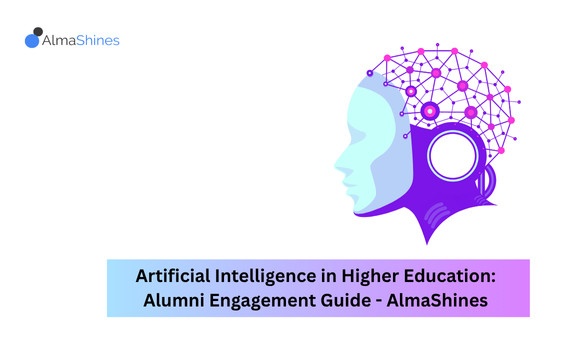Ready to Manage Your Alumni Data Seamlessly? Start Today!
Use data enrichment tools to keep your alumni database accurate, updated—automate updates, clean records, and drive smarter outreach.

The growth opportunity in managing alumni databases is heavily dependent on the degree to which it integrates with systems within your institution.
If your alumni data system is aligned with other systems—like your school’s central website, communications channels, and student information systems—it increases collaboration, makes administrative tasks easier, and offers a complete picture of alumni engagement. As your alumni database increases and their information gets more sophisticated, a scalable and unified system means that your school can continue to foster long-term connections without overburdening administrative resources.
Choose Data
Decide what data fields are required for your alumni profiles. The aim is to capture information that paints a complete picture of your alumni, which will inform your outreach and engagement plans. Think about your aspirations for the data to be as comprehensive as possible. Common information to collect includes name, email address, phone number, graduation year, birthday, current employment, location, and preferred communication methods. These details not only support general contact purposes but also allow for personalized interactions and targeted communication, increasing the likelihood of meaningful engagement.
Standardize Data Entry
Practice consistent data entry to prevent errors and duplicates. Non standardization can lead to messy and unpresentable data, and this damages the efficiency of your alumni communication plan. Drop-down lists, check boxes, and standardized fields like uniform date formats or job designations guarantee uniformity on records. This improves data cleanliness and efficiency when searching, filtering, or reporting in your database.
Integration
Connect your alumni database to other platforms, like your school website, email marketing platform, and event registration tools. Integration facilitates the bidirectional flow of data among platforms, avoiding manual entry and reducing errors. When your alumni system communicates with your marketing tools or event software, for example, it can update attendee records automatically, synchronize email lists, and monitor interactions, saving time and enhancing accuracy.
Gather Data
Accumulate correct information regarding your alumni from various sources and build a comprehensive and trustworthy database. You can import this data from current records in the school, collect data from event sign-ups, surveys, and social media, and request updates from your alumni. Proactively sending invitations at events, campaigns, or class reunions enables natural data gathering while inviting alumni to interact with the school.
Regularly Update Data
Implement a process to periodically update and refresh your database so that data remains accurate over time. People relocate, change jobs, or change email addresses—so be sure to stay current. Send regular emails to alumni asking them to check and update their data. Provide incentives for updating information, like special content, access to events ahead of time, or special alumni benefits, to encourage them to engage and ensure their information is current.
Data Enrichment
Enrich your database with more data on alumni, including their social media presence, career achievements, and memberships. This richer layer of data enables more effective segmentation and personalization of your communication. Certain CRM solutions provide data enrichment services that can automatically populate missing information by searching publicly available data online. A richer profile enables you to celebrate alumni success and know how your graduates are making a difference in their fields or communities.
Training
Get your team trained on how to effectively use the database. It’s not merely about storing information—it’s about understanding how to make the most of it. Make sure that your staff is able to input, update, and pull data in the correct fashion, along with creating reports and list segmentation. Training should also cover best practices for data accuracy maintenance, privacy law compliance, and using analytics tools for campaign optimization.
Analytics and Reporting
Utilize the reporting capabilities of your DBMS or CRM to examine engagement trends, event attendance, and other data. These data can inform you of what works and what doesn’t in your alumni engagement efforts. For instance, examining event attendance over time might show patterns related to location or interest, enabling you to make informed choices and customize your outreach efforts more effectively.
Continuous Improvement
Regularly review the efficacy of your alumni database management procedures. The database must change in accordance with your institution’s objectives and alumni requirements. Obtain feedback from your staff and alumni to determine areas of improvement and implement changes as needed. Whether optimizing user experience, adding data fields, or modifying security procedures, having a practice of continuous review will guarantee long-term success.
Key Elements to Keep in Mind
When setting up your data management system, focus on key elements like segmentation, data privacy, security, automation, and regular data cleansing. Effective segmentation allows personalized communication, while robust data privacy and security measures ensure compliance with regulations and build trust. Automation helps streamline tasks and improve efficiency, and regular data cleansing ensures your database remains accurate, helping you maintain meaningful and efficient alumni engagement.
Segmentation
Ensure the system assists in segmenting your alumni database according to different criteria including graduation year, location, profession, interests, and level of engagement. Such segmentation is required for focused communication and personalized communication. For instance, you may send targeted invites to engineering graduates from the year 2010 residing in New York or communicate job opportunities for a particular industry.
Data Privacy and Security
Maintain data protection legislation compliance (e.g., GDPR or CCPA) by collecting permission to keep and use alumni information. Keeping sensitive data safe is important for establishing and retaining trust. Establish security features such as encryption, password-protected access, and two-factor authentication. Additionally, give alumni obvious choices to control their privacy options and communication preferences.
Automation
Leverage automation features in your selected DBMS or CRM to automate processes and minimize manual work. Create automated emails, reminders, and workflows for regular activities such as sending event invitations, birthday greetings, and follow-ups upon engagement. Automation provides uniform communication, enhances response rates, and enables employees to concentrate on more strategic activities.
Data Cleansing
Perform data cleansing on a regular basis to delete redundant or obsolete records. In the long run, discrepancies pile up and interfere with communication. Clean and precise data enhances communication efficiency, minimizes errors, and makes sure that your reports and analysis depict facts. This is particularly vital when synchronizing data from a variety of systems or importing external files.
Final Note
Understanding your alumni and having a user-friendly system of managing data is key to a successful alumni relations and development program. Taking the time and effort to understand and have a solid system in place is well worth it before concentrating on gathering the information. A good system will lay a foundation for long-term interaction, donor relationships, event attendance, and overall success of your alumni network.
Suggested Blogs
Let’s discuss the idea
Join hundreds of companies transforming their corporate communities with Almashines






